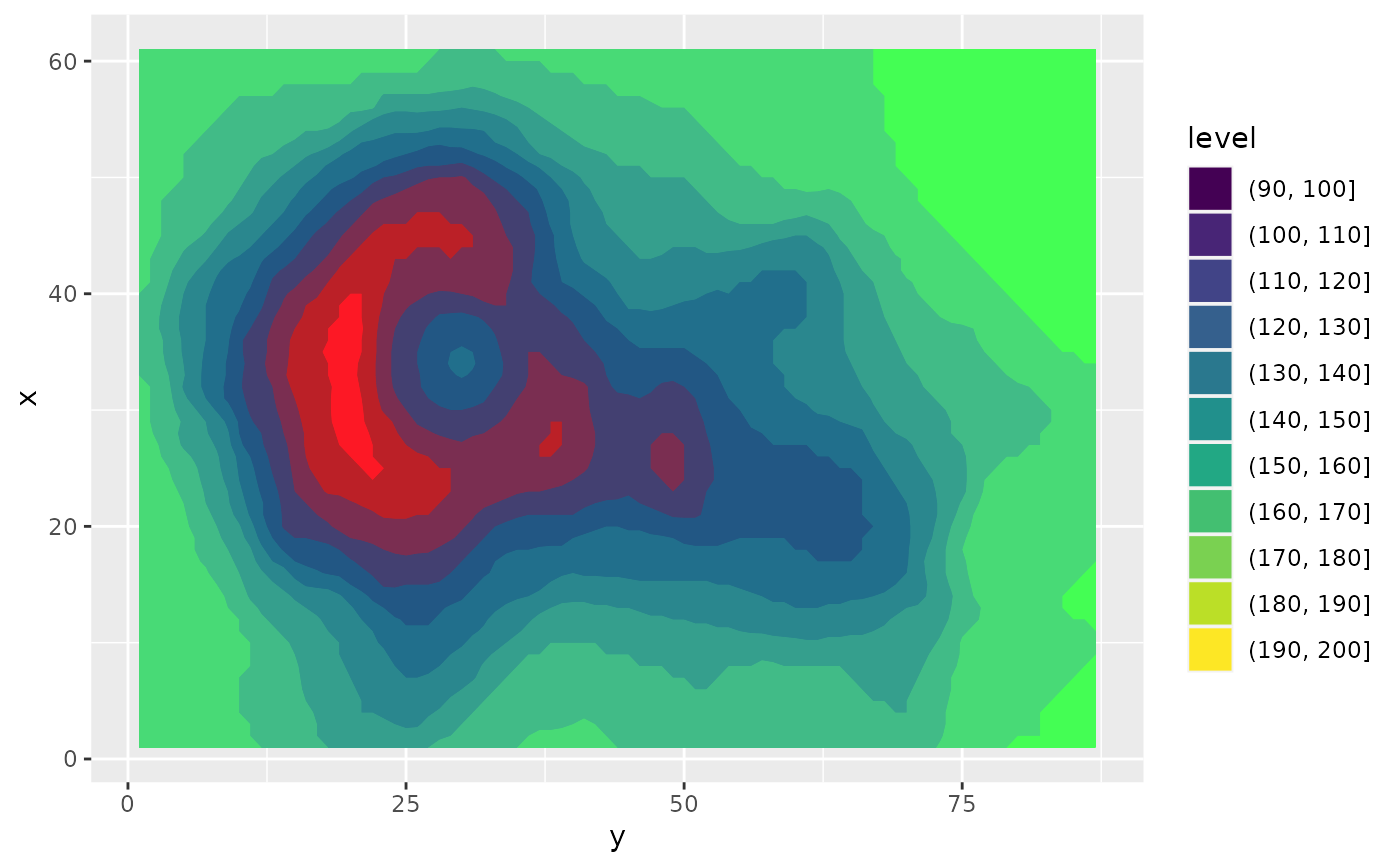Some effects uses a particular channel for specific parameters, such as
with_displacement(), which grabs the relative x and y displacements from
different channels in some other layer. To facilitate specifying which
channel to use from a layer (which is always multichannel), you can wrap the
specification in a channel specifier given below. If a filter requires a
specific channel and none is specified it will default to luminance (based
on the hcl colour space)
ch_red(x, colourspace = "sRGB", invert = FALSE)
ch_green(x, colourspace = "sRGB", invert = FALSE)
ch_blue(x, colourspace = "sRGB", invert = FALSE)
ch_alpha(x, colourspace = "sRGB", invert = FALSE)
ch_hue(x, colourspace = "HCL", invert = FALSE)
ch_chroma(x, colourspace = "HCL", invert = FALSE)
ch_luminance(x, colourspace = "HCL", invert = FALSE)
ch_saturation(x, colourspace = "HSL", invert = FALSE)
ch_lightness(x, colourspace = "HSL", invert = FALSE)
ch_cyan(x, colourspace = "CMYK", invert = FALSE)
ch_magenta(x, colourspace = "CMYK", invert = FALSE)
ch_yellow(x, colourspace = "CMYK", invert = FALSE)
ch_black(x, colourspace = "CMYK", invert = FALSE)
ch_key(x, colourspace = "CMYK", invert = FALSE)
ch_custom(x, channel, colourspace, invert = FALSE)Arguments
Value
x with a channel spec attached
Examples
library(ggplot2)
volcano_long <- data.frame(
x = as.vector(col(volcano)),
y = as.vector(row(volcano)),
z = as.vector(volcano)
)
# invert the green channel
ggplot(volcano_long, aes(y, x)) +
as_reference(
geom_contour_filled(aes(z = z, fill = after_stat(level))),
id = 'contours'
) +
as_colourspace(
ch_red('contours'),
ch_green('contours', invert = TRUE),
ch_blue('contours')
)
